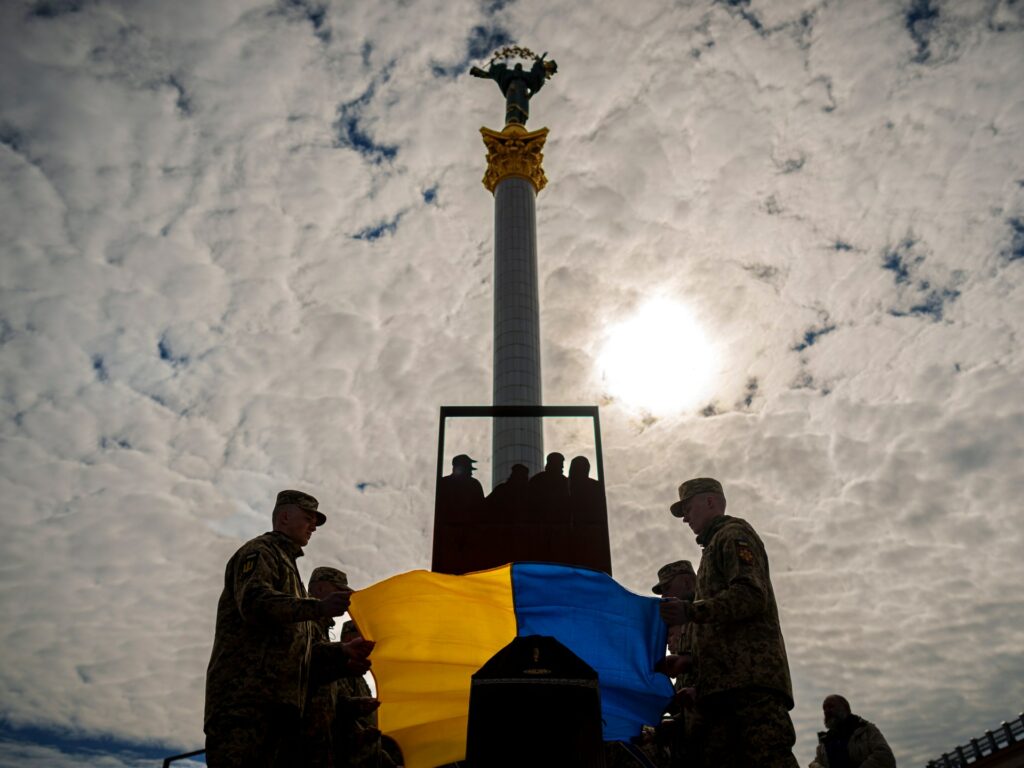Europe weaponizes its economic might in response to Russia’s war on Ukraine
The ongoing war between Russia and Ukraine has forced Europe to use its economic power as a weapon against Moscow. Experts on Ukraine believe that Kyiv’s steadfast refusal to surrender to Russia’s aggression marks a pivotal moment for the continent.
The conflict between Russia and Ukraine has resulted in significant political implications, with Russia failing to achieve its goal of establishing a vassal state in Eastern Europe. The international community recently gathered at Cambridge University for a symposium organized by the Centre for Geopolitics. The focus of the event was on the Maidan Revolution of 2013, which led to the ousting of Ukraine’s pro-Moscow president Viktor Yanukovych and set the country on a path towards closer ties with Europe. The symposium also delved into Russian President Vladimir Putin’s decision to invade Ukraine in February 2022.
Baroness Catherine Ashton, the former foreign policy chief of the European Union, highlighted the fact that Putin has lost Ukraine. She emphasized that Ukraine’s resistance to Russian aggression has been unwavering, signaling a clear defeat for Moscow’s ambitions in the region.
The Maidan protests in 2013, triggered by Yanukovych’s refusal to sign an association agreement with the EU, were a turning point for Ukraine. The protests brought together people from all walks of life, united in their desire for a better future aligned with European values.
The European Union has also been transformed by the experience of incorporating Ukraine into its sphere of influence. The EU has become more unified in its foreign policy approach, with member states rallying behind Ukraine and imposing sanctions on Russia in response to its actions.
As the conflict continues, European leaders are exploring new security strategies for the future. The EU has extended invitations to Ukraine and Moldova to begin the process of joining the union, a move that is seen as a form of security for both countries.
In light of the ongoing crisis, there have been calls for NATO to provide military assistance to Ukraine and expedite its membership process. European leaders are working together to support Ukraine and counter Russian aggression in the region.
While the US has faced criticism for cutting aid to Ukraine, European nations have stepped up to fill the gap and support Ukraine in its fight for sovereignty. The coordinated efforts of European countries and NATO members demonstrate a united front against Russian aggression in Eastern Europe.
Overall, Europe’s response to Russia’s war on Ukraine highlights the continent’s commitment to defending its values and supporting countries that seek to align with European principles of democracy and freedom.
#Russias #war #Ukraine #forces #Europe #weaponise #economic
The Russia-Ukraine war has had significant long-term implications for Europe and the world at large. One key takeaway from the conflict is the strengthening of European unity and willingness to defend against Russian aggression. The EU’s response to the war, including imposing sanctions on Russia and providing military and financial aid to Ukraine, has demonstrated the bloc’s ability to leverage its economic power for geopolitical purposes.
Looking ahead, it is crucial for European leaders to continue to work together to develop security strategies for the future. The invitation of Ukraine and Moldova to start their EU membership processes is seen as a form of security and should be pursued further. Additionally, expediting negotiations for Ukraine’s membership in NATO and deploying NATO troops to Ukraine could help strengthen the country’s position in negotiations with Russia.
It is also important for European leaders to be cautious of external influences, such as potential interference from Russia. The freezing of aid to Ukraine by US lawmakers, potentially influenced by former President Trump, highlights the need for Europe to take on more responsibility in supporting Ukraine.
In conclusion, the Russia-Ukraine war has highlighted the importance of European unity and the need for proactive measures to safeguard against external threats. By continuing to work together and support Ukraine, European leaders can help ensure stability and security in the region.

